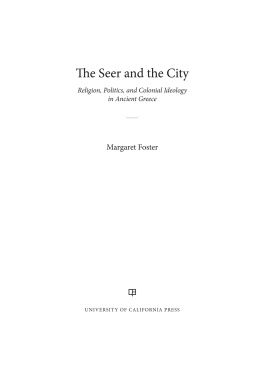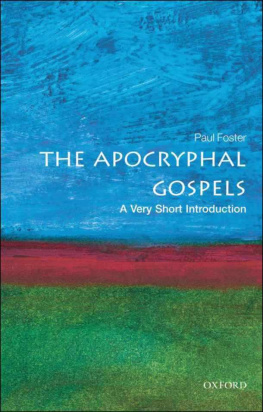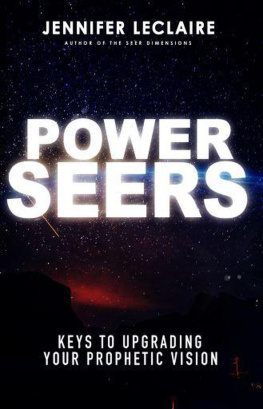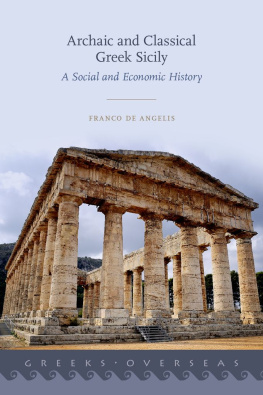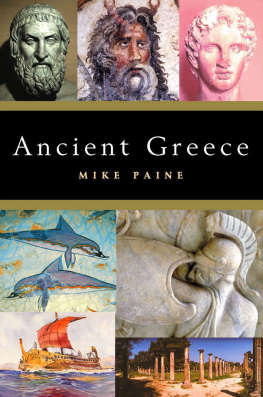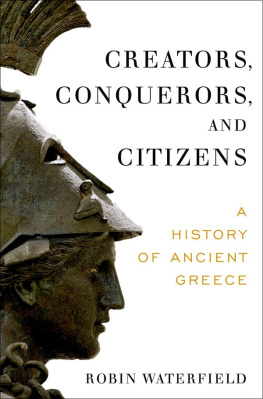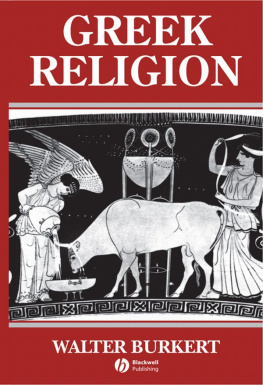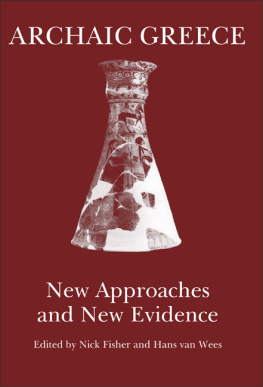ACKNOWLEDGMENTS
This book began at UC Berkeley, and I would like to acknowledge first Leslie Kurke, Mark Griffith, Donald Mastronarde, and Emily Mackil for their collective wisdom and support in getting the project off the ground. As the years pass, I realize with increasing clarity the extent to which I was standing on the shoulders of giants at Berkeley. Audiences at Indiana University, Real Universidade de Santiago de Compostela, the University of Notre Dame, Florida State University, the University of South Carolina, and the meetings of the Society for Classical Studies provided helpful comments on earlier versions of chapters.
A version of chapter 5 appeared in Classical Antiquity as Hagesias as Sunoikistr: Seercraft and Colonial Ideology in Pindars Sixth Olympian Ode, and I am grateful to the University of California Press for granting permission to reproduce parts of that article here. I would also like to thank the two anonymous readers of that article for their generous comments. The two readers of the book manuscript as well as UC Presss Editorial Committee helped transform the book over the last year. Their detailed reports made it better.
Eric Schmidts interest in the project at an early stage was a highlight of my pre-tenure career. I am grateful for his subsequent patience in guiding me through the stages that followed and for his clear vision for the book. I also wish to thank Maeve Cornell-Taylor for shepherding me through the process of completing the manuscript and Cindy Fulton for overseeing its production. Marian Rogerss meticulous copyediting saved me from errors in both the English and the Greek.
Colleagues in the Department of Classical Studies at Indiana University have been wonderfully encouraging and supportive over the years. Noah Kaye helped me track down an image for the cover art. I remain indebted to Claire Drone-Silvers, who carefully read through the manuscript and checked the Greek passages and the bibliography. Large portions of this book were written during sessions of Indiana Universitys Scholarly Writing Program. I am grateful to my colleagues in these sessions and to the director, Laura Plummer, for their camaraderie and contagious productivity.
I owe special thanks to Melissa Mueller for her wise advice and especially for reading a draft of the introduction at the eleventh hour. Nigel Nicholson has been unfailingly generous in providing comments that always improved my arguments. Finally, it has been the great privilege of my academic life to have been able to work with Leslie Kurke. This book has benefited at every stage from her own innovative scholarship, above all her ability to crack open and illuminate Pindaric poetry without dulling its beautiful strangeness, and her tireless dedication to her students.
The support of friends and family has helped me see the book through, especially the support of my siblings, Jack, Charlie, Dan, Pete, and Beth Foster. I am also grateful to Faith Rose, who first taught me about ancient Greece, and to Rachel Friedman and Rachel Kitzinger, who first showed me why it matters. To Susan Levin and Robert Ready, I hope that I have finally earned a place on your shelf of family authors. Two years ago, my parents, Patricia and John Foster, moved to Bloomington. This book could not have been written without both of them nearby. I owe special thanks to my extraordinary mother, who rescued me daily and who, together with my father, has made my own childrens lives so much richer. If I turn out to be half the mother she is, they will be very lucky indeed. I would also like to thank Jack, Ruthie, and Bridie Rose, who were born during the writing of this book, for letting this project share their mother with them and for their patience in letting me finish it. Finally, this book is dedicated to my husband, Jonathan Ready, whom I wish to thank above all for helping me talk through what I wanted to say and how to say it, for reminding me to take the long view, and for keeping us all well fed.
CONVENTIONS AND ABBREVIATIONS
I use the standard editions of Snell and Maehler for all quotations of Pindar and Bacchylides: B. Snell and H. Maehler, eds., Pindari Carmina cum Fragmentis, vol. 1, Epinicia (Leipzig, 1987); H. Maehler, ed., Pindari Carmina cum Fragmentis, vol. 2, Fragmenta, Indices (Leipzig, 1989); H. Maehler, ed., Bacchylidis Carmina cum Fragmentis (Leipzig, 1992). Unless otherwise noted, I use the Oxford Classical Text (OCT) series for all other ancient authors. When there is no OCT available, I use the most recent Teubner edition.
The names of most Greek authors appear in their more familiar Latinized form (e.g., Bacchylides instead of Bakkhulides; Aeschylus instead of Aiskulos), but for most other Greek names (those of literary characters, historical figures, etc.) I have preferred to transliterate directly from the Greek. Some inconsistency is unavoidable, and this is most apparent in the spelling of place-names, which follow a criterion of perceived familiarity (thus the Latinized Crete but the transliterated Oropos). The names of Greek authors and works are abbreviated in citations following the conventions listed in the OCD 4, although Bacchylides is abbreviated as Bacch. and Pindar is abbreviated as Pi. The abbreviations of Latin authors and works follow the conventions listed in OLD. Translations are my own unless otherwise indicated.
CEG | Hansen, P.A., ed. 198389. Carmina Epigraphica Graeca. 2 vols. Berlin. |

